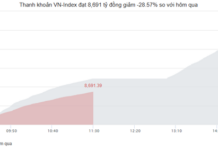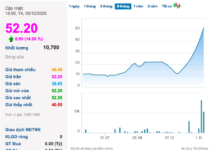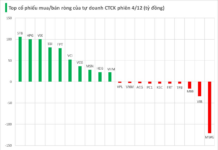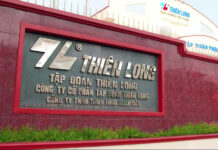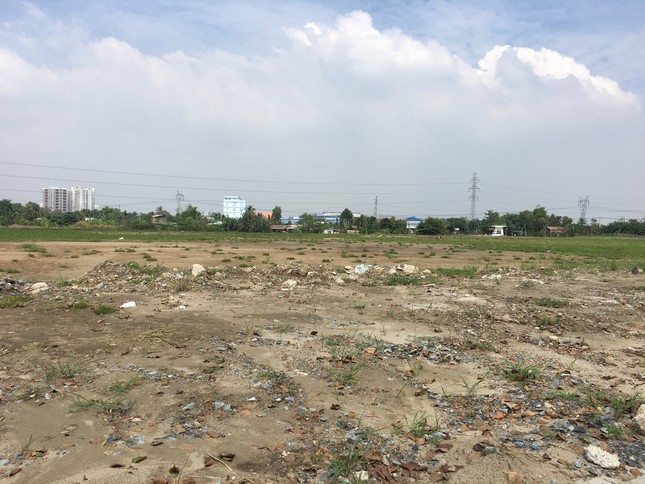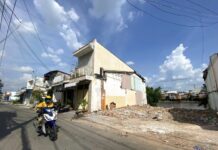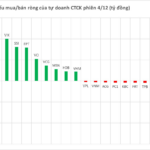HoREA Seeks Clarification on Land Law Article 257 from National Assembly’s Standing Committee
The Ho Chi Minh City Real Estate Association (HoREA) has requested the National Assembly’s Standing Committee to provide legal interpretation regarding Article 257, Section 1 of the 2024 Land Law.
According to HoREA, the draft land price framework in Ho Chi Minh City has garnered significant attention from the public, businesses, and real estate investors. Thus far, Ho Chi Minh City is the only locality to have released information about the draft land price framework, which is expected to be applied from August 1 to December 31, 2024.
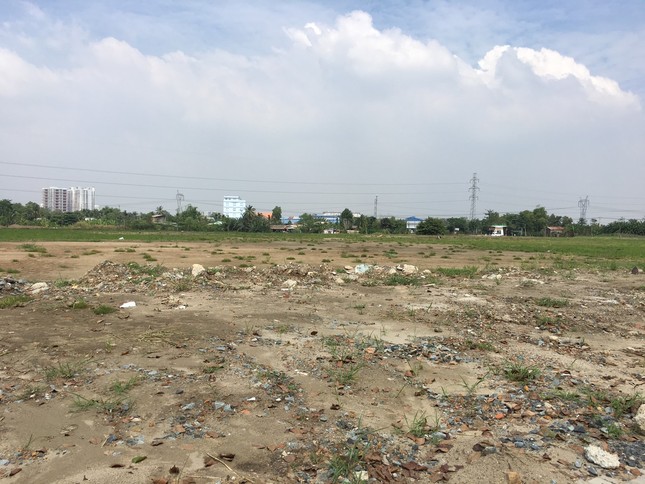
Discrepancies in interpreting Article 257, Section 1 of the 2024 Land Law.
The Department of Natural Resources and Environment explained that Ho Chi Minh City must strictly adhere to Article 257, Section 1 of the 2024 Land Law, which necessitates the formulation of a draft land price framework due to the absence of provisions regarding price adjustment coefficients. Updating land prices for resettlement purposes is also crucial to prevent bottlenecks in determining the financial obligations of households and individuals, as well as in carrying out land clearance and resettlement compensation.
However, HoREA maintains that their interpretation of Article 257, Section 1 of the 2024 Land Law indicates that the land price framework issued by the provincial People’s Committee in accordance with the 2013 Land Law, along with the price adjustment coefficients stipulated in Decree 44 and Decree 45, remain valid until December 31, 2025.
If necessary, the provincial People’s Committee may decide to adjust the land price framework in line with the 2024 Land Law to align with local realities. Such adjustments may involve modifying land prices at a specific land location, multiple locations, or all land locations.
HoREA asserts that in all cases where land use fees are calculated when the state recognizes land use rights or permits a change in land use purpose from agricultural land or non-residential land to residential land for households and individuals exceeding the land allocation limit, both the land price framework and the price adjustment coefficients must be applied simultaneously, rather than solely relying on the land price framework.
HoREA further mentions that currently, all dossiers related to land use fee calculations for recognizing land use rights or changing land use purposes for households and individuals in Ho Chi Minh City have been halted at the tax authorities. These procedures are awaiting a decision from the competent authority regarding the potential issuance of an adjusted land price framework and its implementation timeline.
According to HoREA, Article 257, Section 1 of the 2024 Land Law may lack the clarity needed for uniform understanding and implementation across localities. Therefore, they suggest that the National Assembly’s Standing Committee provide legal interpretation to ensure consistent understanding and facilitate smoother implementation.
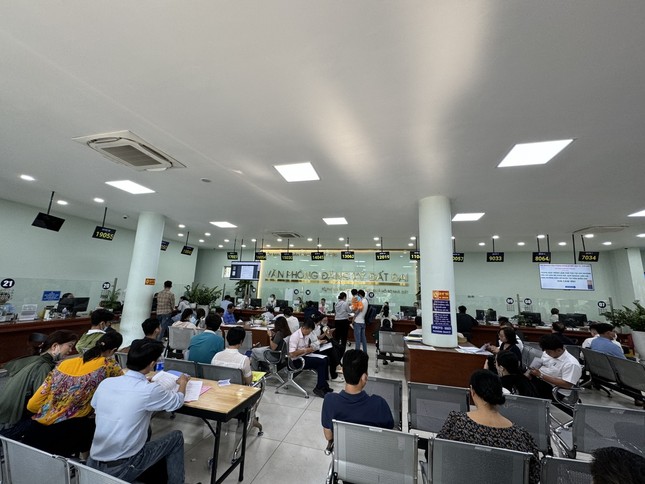
Ho Chi Minh City residents face delays in determining financial obligations for changing land use purposes.
Consequently, HoREA has requested the National Assembly’s Standing Committee to provide legal interpretation for Article 257, Section 1 of the 2024 Land Law. This clarification aims to ensure uniform understanding and facilitate smoother implementation across localities, providing peace of mind to residents and granting them additional time of one and a half years to prepare financially and complete the procedures for obtaining land-use rights certificates (red book).
Ho Chi Minh City Takes a Different Approach
According to the Department of Natural Resources and Environment of Ho Chi Minh City, adjusting the land price framework to align with the city’s actual land prices, as stipulated in Article 257, Section 1 of the 2024 Land Law, is necessary.
During a meeting on the evening of August 8, Mr. Dao Quang Duong, Deputy Head of the Land Economy Division at the Department of Natural Resources and Environment, mentioned that determining financial obligations related to land based on the appropriate land price framework is a challenge faced by many provinces and cities, not just Ho Chi Minh City.
While the 2024 Land Law applies nationwide, Ho Chi Minh City is the only locality facing this issue. For instance, Binh Duong province continues to use the land price adjustment coefficient (K coefficient) effective from January 1, 2024, instead of the 2023 land price framework. The tax authorities in Binh Duong still calculate land use fees based on land prices issued from January 1, 2024, unaffected by the 2024 Land Law. The Binh Duong Tax Department confirmed that the locality is applying land prices as per Decision 36/2020 of the provincial People’s Committee, using the current prices without any changes.
Mr. Nguyen Ngoc Thuong, Deputy Director of the Department of Natural Resources and Environment of Dong Nai province, stated that Dong Nai is in the process of establishing a land price framework based on the previous Land Law, which remains valid without any adjustments. According to the 2024 Land Law, the land price framework must include resettlement land prices, so Dong Nai will soon issue land prices for some resettlement areas to facilitate timely compensation, support, and resettlement.
In Binh Thuan, Mr. Phan The Hanh, Director of the provincial Department of Finance, shared that they are still calculating land use fees based on the land price framework issued on January 1, 2024. Any changes to the land price framework will only take effect from January 1, 2025.
Meanwhile, Hanoi has been applying a new K coefficient since July 29, in accordance with Decision No. 45/2024/QD-UBND. Leaders of the Departments of Natural Resources and Environment in the Mekong Delta region, including Dong Thap, An Giang, Vinh Long, Soc Trang, Hau Giang, and Tra Vinh, confirmed that they are still using the old K coefficient without any changes.
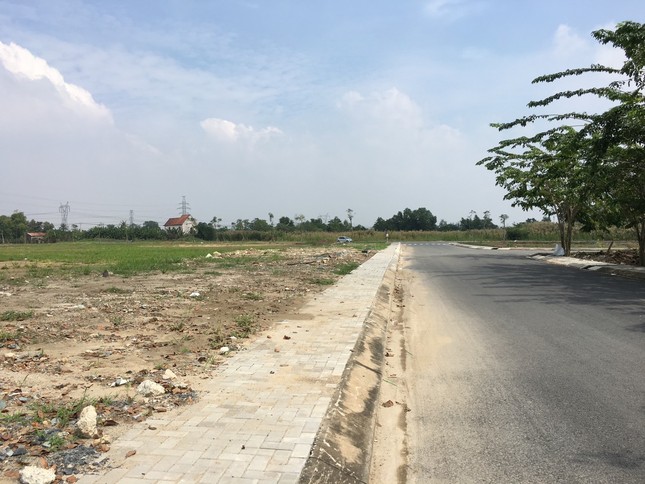
Currently, only Ho Chi Minh City has halted administrative procedures for its residents, while other provinces and cities continue to process real estate-related documents, including those for changing land use purposes.
In a conversation with Tien Phong, Mr. Dao Trung Chinh, Director of the Department of Land Planning and Development under the Ministry of Natural Resources and Environment, affirmed that the 2024 Land Law permits the continued use of the current land price framework issued by the provincial People’s Committee until December 31, 2025. If this framework is applied, localities can still utilize the K coefficient to address specific cases as needed.
Mr. Chinh further stated that the 2024 Land Law does not prohibit provinces and cities from using the old land price framework to calculate land use fees, including for changing land use purposes.
Attorney Tran Duc Phuong, from the Ho Chi Minh City Bar Association, confirmed that the land price framework with the K coefficient adjustment, as per Decision 02/2020/QD-UBND issued on January 16, 2020, by the Ho Chi Minh City People’s Committee, remains valid until December 31, 2024. Naturally, this decision will remain effective until a new land price framework is issued, at which point the K coefficient will no longer be applicable.
“Article 257, Section 1 of the 2024 Land Law allows localities to apply the old land prices until December 31, 2025, or adjust the land price framework based on their specific circumstances,” said Attorney Phuong. “Therefore, until the adjusted land price framework for Ho Chi Minh City is issued, the old land price framework remains valid until December 31, 2025.”
Emotional Kieu people when admiring Ho Chi Minh City from Metro Line 1
Ho Chi Minh City has undergone a remarkable transformation since the day I left. It now boasts a completely different appearance, exuding a fresh and vibrant energy. This sentiment was captured by Mr. Nguyen Duong Nam Phuong, a Vietnamese American, who was amazed by the city’s newfound liveliness.



